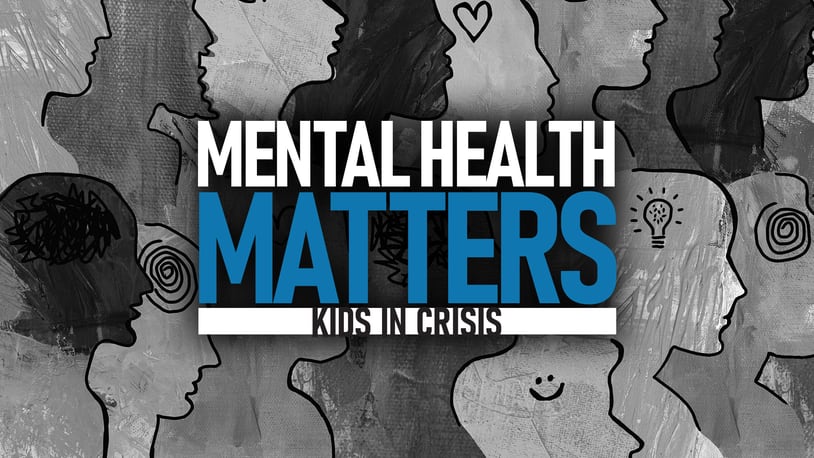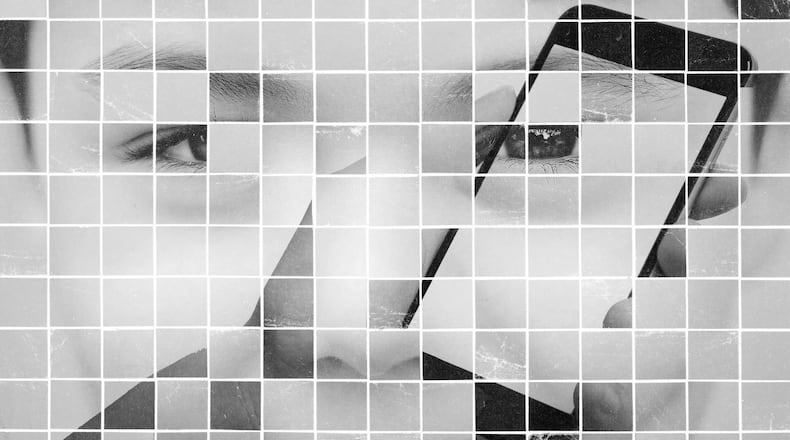“They send signals between our nerve cells and between our brain cells,” said Dr. Fadi Tayim, division chief of Premier Health’s Brain Mapping Center at the Clinical Neuroscience Institute.
Dopamine is most commonly linked with pleasure and reward, and that acts on people’s reward circuitry, which is a small part of the brain, Tayim said.
Serotonin is often linked with better mood regulation and feelings of well-being, he said.
“When people get ‘likes,’ or even the notifications for ‘likes’ on their phone, your brain does release dopamine...It’s a reward chemical, so it makes you feel happy. It makes you feel satisfied,” Tayim said.
It’s a quick but short-lasting feeling of happiness, he said.
“So you get that quick hit of happiness, but it can be very unhealthy because it feels good, and when we have any feel-good chemicals, you want more of it,” Tayim said.
If people are getting that dopamine hit through social media, they could be seeking more reactions, notifications and people liking and responding to their content. That can lead to a potentially unhealthy cycle of seeking reward or validation, Tayim said.
• MENTAL HEALTH MATTERS: More from this project
“That drive is very similar to the foundations of those developing a habit or an addiction,” he said.
“When people are continuously checking for likes or notifications or updates, it’s a lot like gamblers who keep playing to achieve a win because it’s all dopamine and it’s all...reward,” Tayim said.
The brain also can’t tell the difference between something said to people in person versus online, so online bullying could be just as harmful mentally no matter the method of delivery.
“It’s not as pronounced, and it’s not as obvious either,” Tayim said.
This can lead to an impact on self-esteem, because at some point, the likes and social media notifications stop.
“If they’re not posting and getting likes and gratification from external sources like their followers, what does that do to someone’s psyche and their internal view of themselves? And that’s what can be really unhealthy,” Tayim said.
Screen time limits and sleep
Dr. Ryan Sinclair, a pediatric psychologist at Dayton Children’s Hospital, noted screen time limits for kids have been dropped.
Previously, the American Academy of Pediatrics suggested limits in hours, but the organization now simply suggests limiting screen time as much as possible, especially for younger kids.
Now, the recommendations include screen time with educational programming, and most of all, guardians closely monitoring what kids are doing on screens.
“A lot of kids and teenagers, they pretty much have that unmonitored screen time at times and when they’re on social media, that’s where so many things can happen,” Sinclair said.
Adults can ask questions of the kids in their lives and create screen-free zones, such as no screens in the bedroom.
And adults should also model good behavior around screens, he said.
“We just want to make sure that we’re being good screen role models for kids and teens as well since they’re gonna be looking up to us,” he said.
Sinclair works with kids in the sleep lab, and he said cell phones can particularly harm kids’ sleep.
“I feel like it’s been challenging, particularly since COVID,” he said. “Because the screens have just permeated every aspect of life, education and how we do homework.”
MENTAL HEALTH MATTERS
A project from the Dayton Daily News

Mental health issues affect all segments of our community, in slightly different ways. Our in-depth reporting focus this year is centered on children through our Mental Health Matters: Kids in Crisis series. With this project, we'll address the larger community in crisis by investigating how mental health issues impact higher education, the workforce and seniors.
- » Our investigation shows how social media is affecting youth mental health
- » How social media impacts your brain
- » Schools say cell phone bans working as attorneys general seek congressional action to address youth social media use
- » Letter from the editor: Mental health is a community challenge we must solve together
- » Sign up for our Mental Health Matters newsletter
- » Full project coverage


